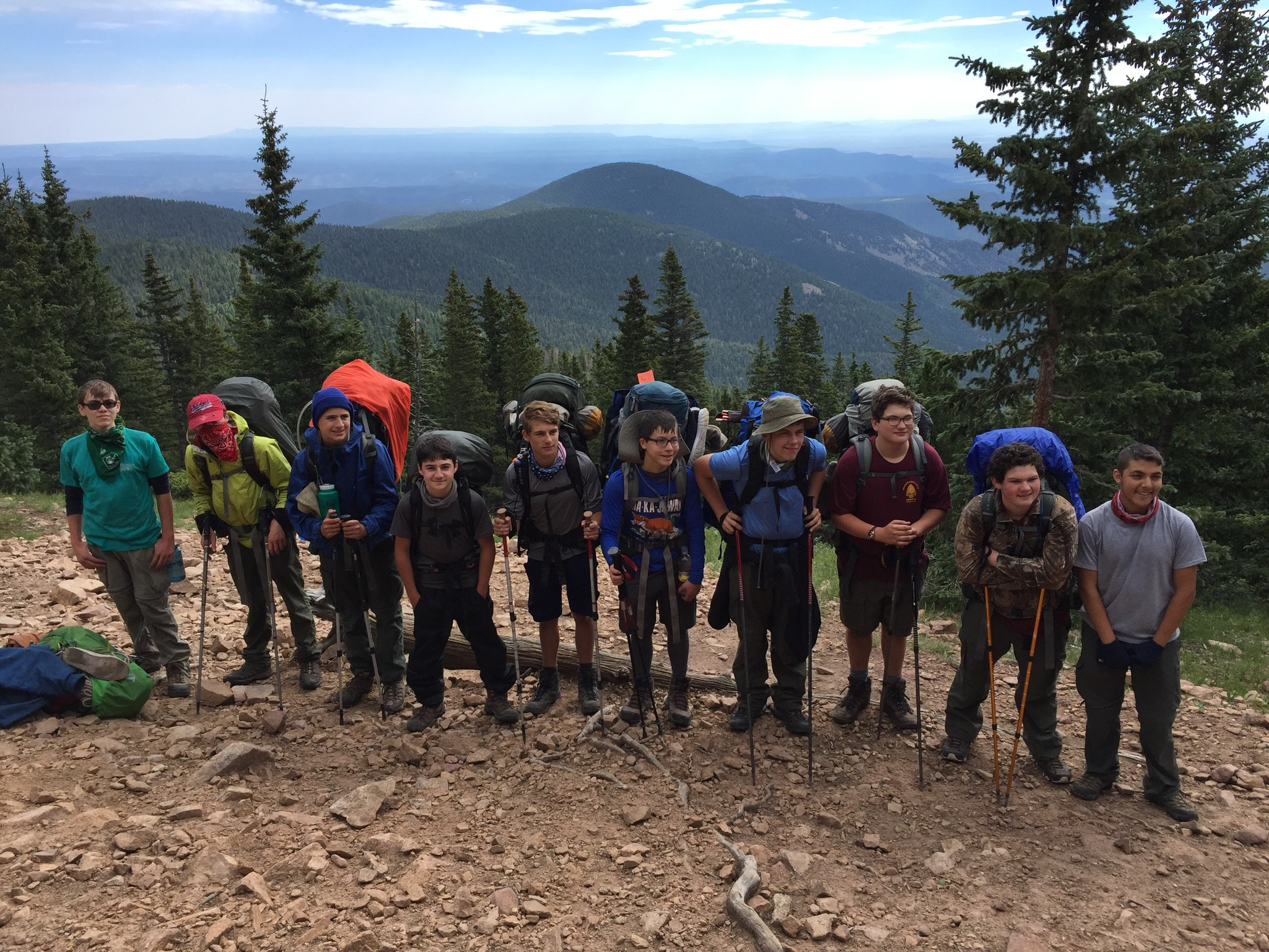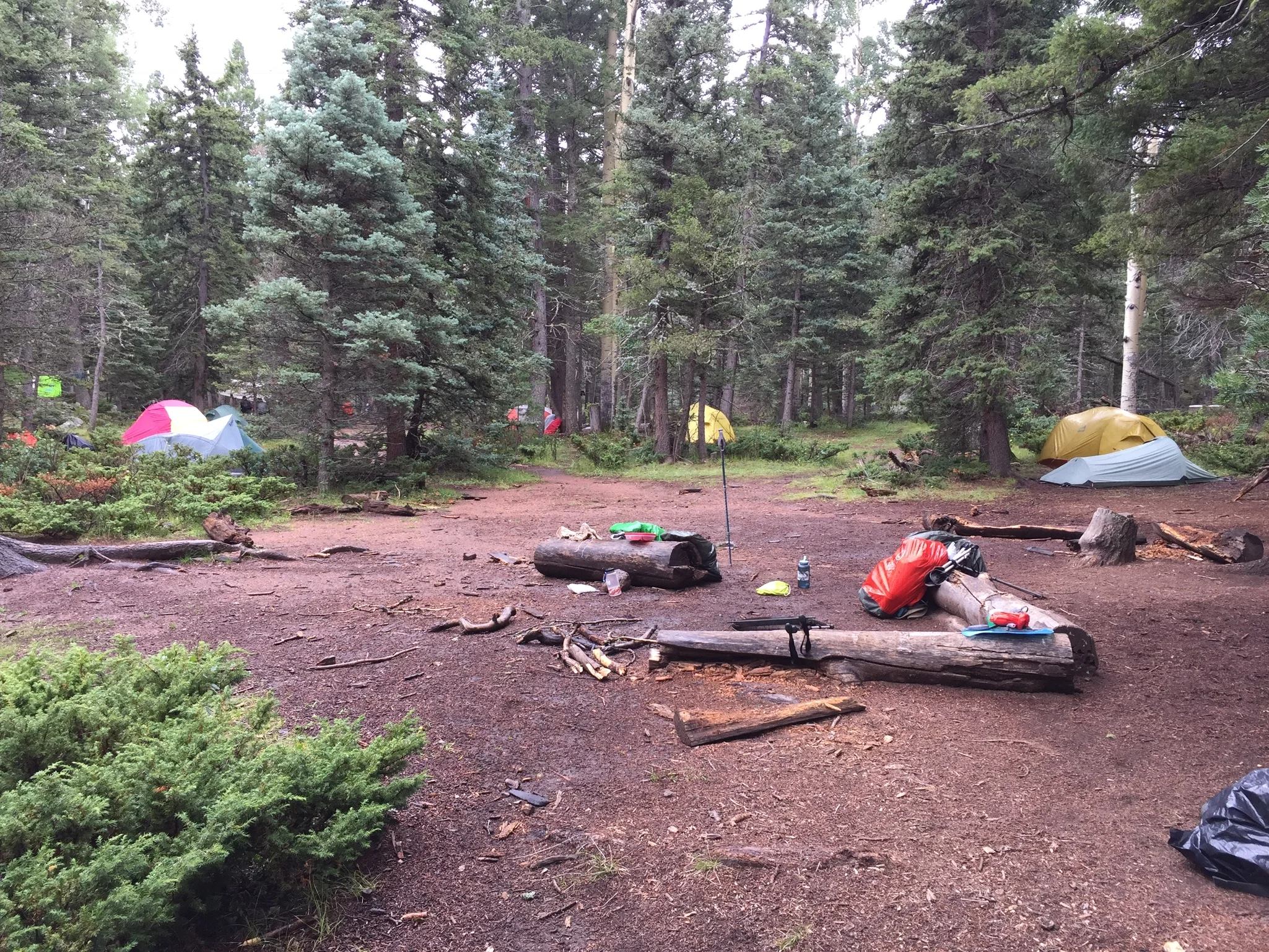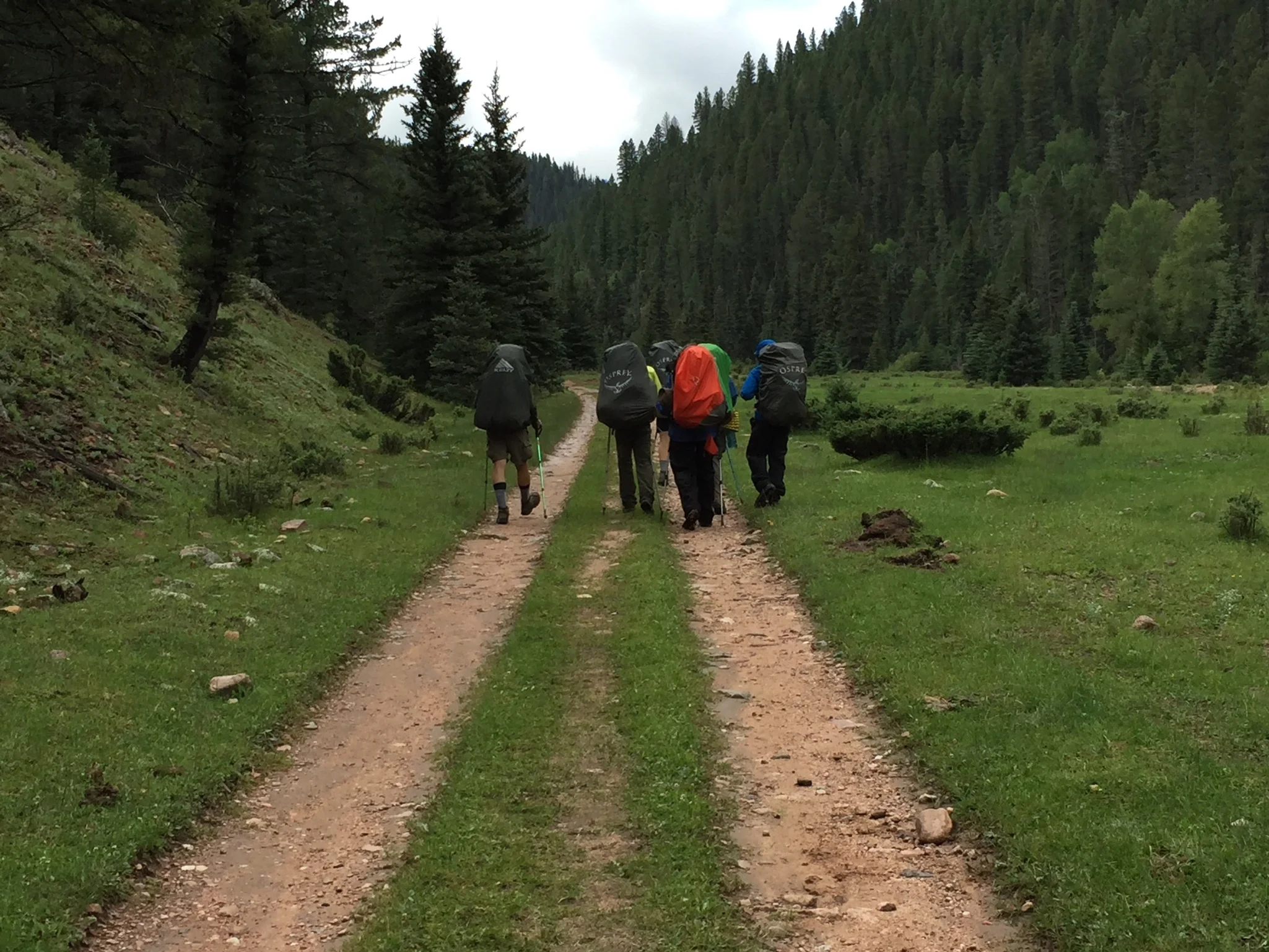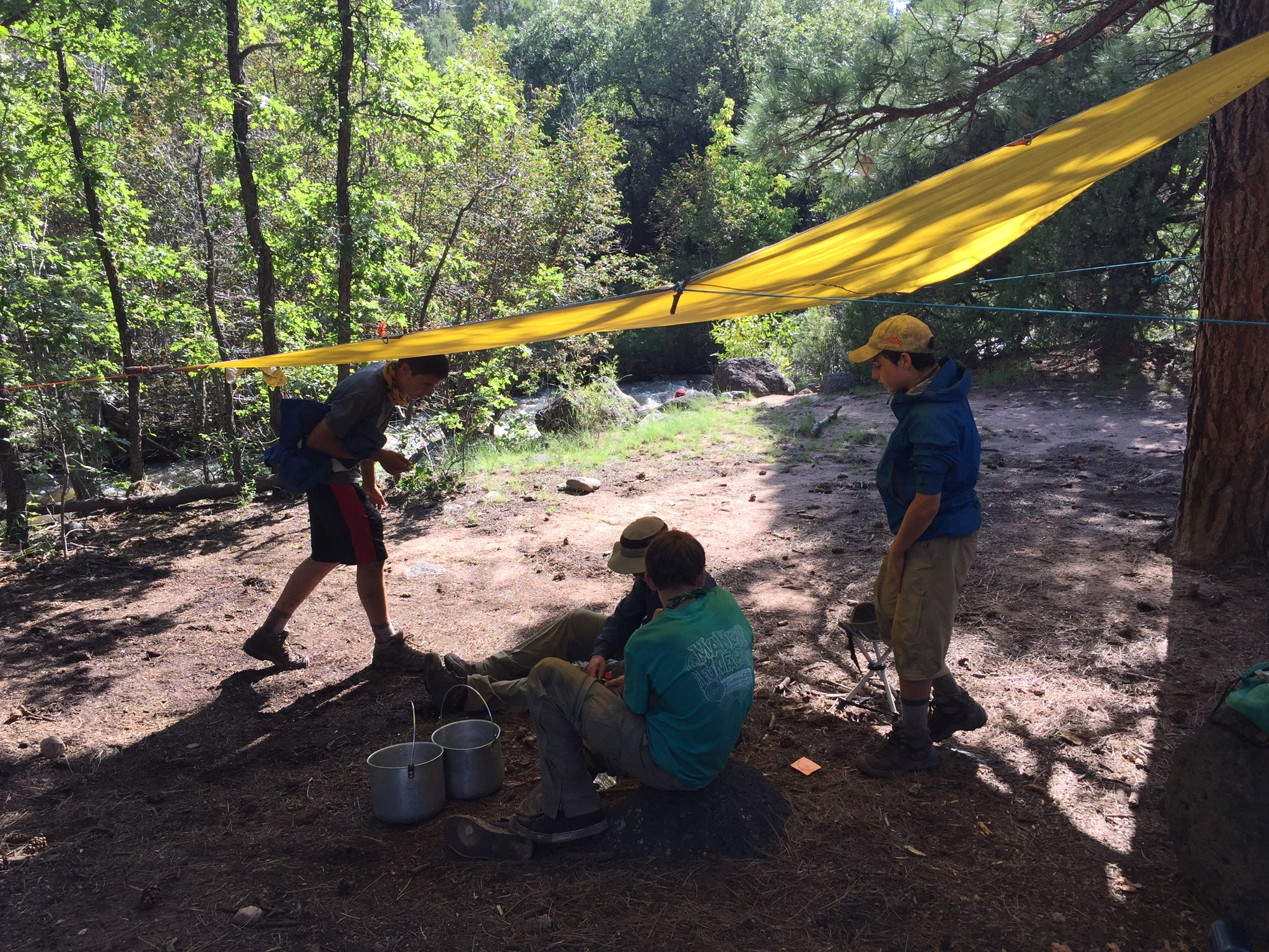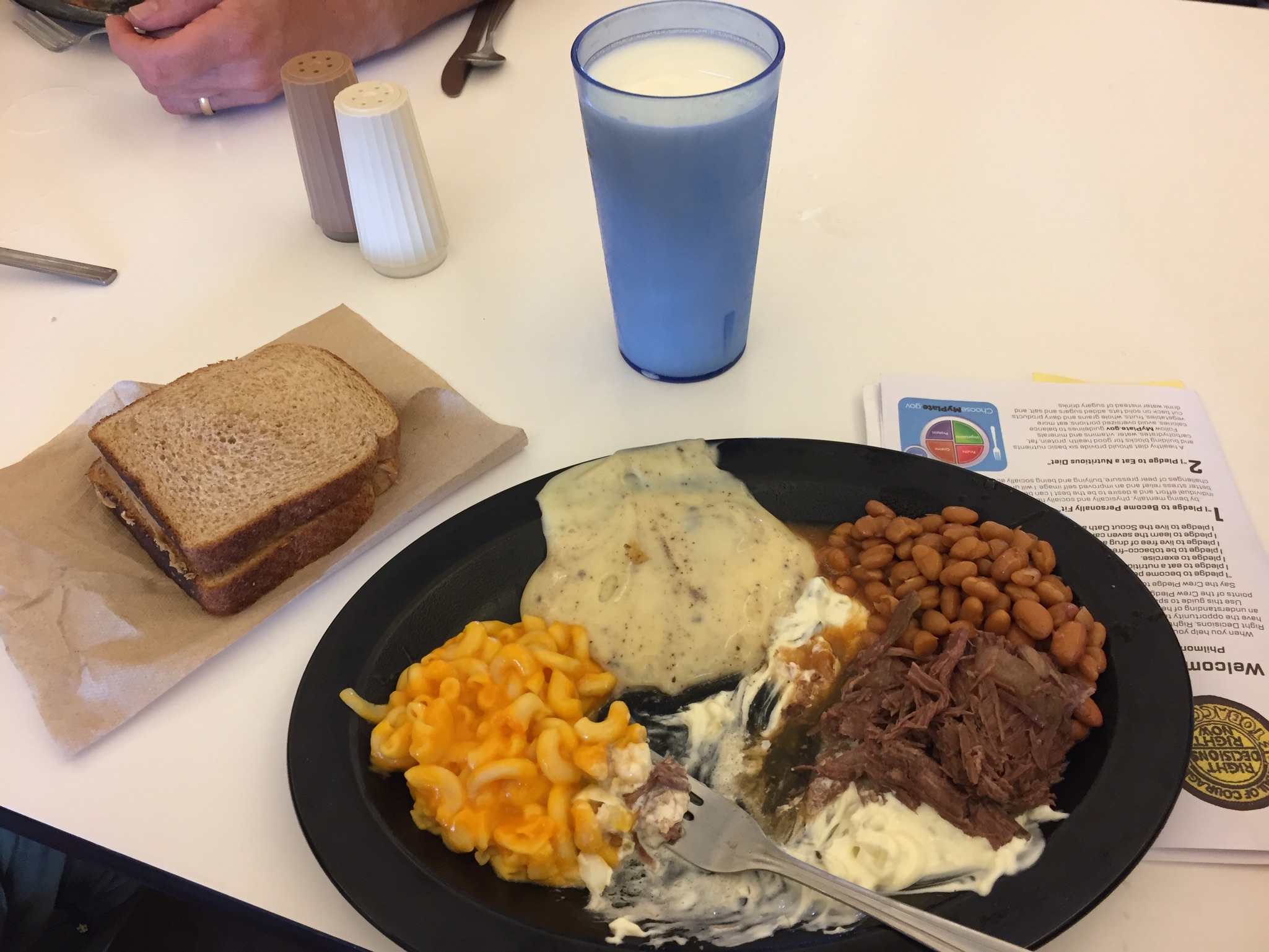Boys… want two weeks away from your parents? Parents, want a reason to get into excellent shape or want two weeks away from your son?
Our 2017 Philmont trip was a once in a lifetime experience for the scouts and their adult advisors. This was premier scouting event. The program required significant planning. We applied for our time slot about 21 months in advance with a $100/person deposit. November 2017 is the time to apply for summer 2019. We trained as a team starting about ten months before our trek. Philmont Scout camp offered about three dozen hikes that include strenuous challenges. That range of intensity allowed the scouts to adjust their Philmont experience according to their capability and expertise. Philmont required our scouts to select a menu of six treks and associated programs. Philmont assigned us to one of those six treks, the most demanding trek we identified, summiting Mount Phillips with full packs.
We flew to Denver and stayed two nights in Colorado Springs, acclimating to the altitude. We visited the Air Force Academy and explored Florissant National Monument, spending the day at 8400 feet. Philmont starts above 6000 feet and goes up from there.
Once we arrived at Philmont, we met our ranger, a rising junior at the Air Force Academy. She showed us around base camp and taught the scouts an incredible amount of content in a few days: land navigation, water purification, bear safety and leave no trace methods. The ranger emphasized hanging all smellables at night in bears bags. We labeled chipmunks “mini-bears” because they were super aggressive. As soon as we set our packs down, the chipmunks were darting around. After our first day in base camp, she backpacked with us for two nights, continuing the training before turning us loose. After that, we were on our own.
Philmont extended the concept of a scout run effort to a new level. Adult advisors provided advice and wilderness first aid backup. We let the scouts make decisions. We intervened for safety and team dynamics. On the first day without the ranger’s help, our crew made mistakes and learned from them. As we descended the Tooth of Time, a pile of giant rocks that appeared designed to sprain ankles or worse, we hiked at separate rates. That was our first mistake. The route down lacked distinctive landmarks, so we became separated. Once we arrived at a recognizable trail, it required 20 minutes to get us together. We held a hot wash right away. We never accidentally became separated after that. During that discussion, two scouts explained they were out of water, miles from the nearest water source. The adult advisors gave them water to get them back. We never ran out of water after that. Trail junctions were marked poorly. We made a wrong turn entering a camp that evening because multiple trails came together near each other. We arrived at our destination camp that night in the dark. After that mistake, we paid close attention to the camp maps nailed to the trees. Philmont offered a practical exam in every outdoor scouting lesson.
Philmont was no summer camp. Scouts made their own decisions. When the scouts decided to skip a pasta dinner, we skipped that dinner. We ate dinner at lunchtime to avoid cooking at sites without water sources. Backcountry rangers allowed our scouts to adjust plans. We did not insist the scouts wake up and depart camp on a schedule, so we arrived at a few sites late in the afternoon and scheduled that activity for the next morning. We lingered the longest our morning at Fish Camp, a picturesque location with mountain streams where we tied our own flies.
We hiked through some of the most beautiful wilderness scenery I have seen: mountain streams, mountains, high meadows and unbelievable views. We frequently stopped to absorb the sights. The scouts chose the trek with an emphasis on the activities. They went rappelling, fishing, shooting 30.06 rifles, and shooting black powder rifles. Other activities added trail construction, hatchet throwing, and animal herding. On our last day on the trail, we visited a 19th-century trading post on the Sante Fe trail.
After spending ten summers at scout camps, I believe Philmont is in a class of its own compared to other scout camps. Treks are physically demanding due to terrain, weather, and altitude. We camped two nights above 10,000 feet with morning temperatures in the 40s. Thunderstorms at 3 pm were the norm. We had to depart our trail construction early due to lightning. Our group hiked by ourselves, sometimes not seeing others for 3 or 4 hours at a time on the trail. We passed other troops and met scouts from across the country. Our scouts traded with other troops for their favorite snacks. There is no other hiking and backpacking experience like this in Scouting.
Philmont taught a lot of lessons. Our team developed the confidence that we could hike up mountains, at altitude, in thunderstorms and overcome other adversities. We avoided cotton because it dries slowly. We learned the value of realistic training. The only way to prepare for Philmont is to go backpacking a few days in a row. I hiked 100 miles in my boots in advance and had no issues with blisters or hot spots. I carried a 40-pound pack at Philmont, but I departed home under 30 pounds total so I could add five meals and other troop gear. Scouts should pack small gear in distinct small stuff sacks to avoid unloading their packs to locate items.
After 12 incredible days, the scouts returned home with memories they’ll never forget and experiences to share with the rest of the troop. It was awesome to share this once in a lifetime experience with the scouts.


































